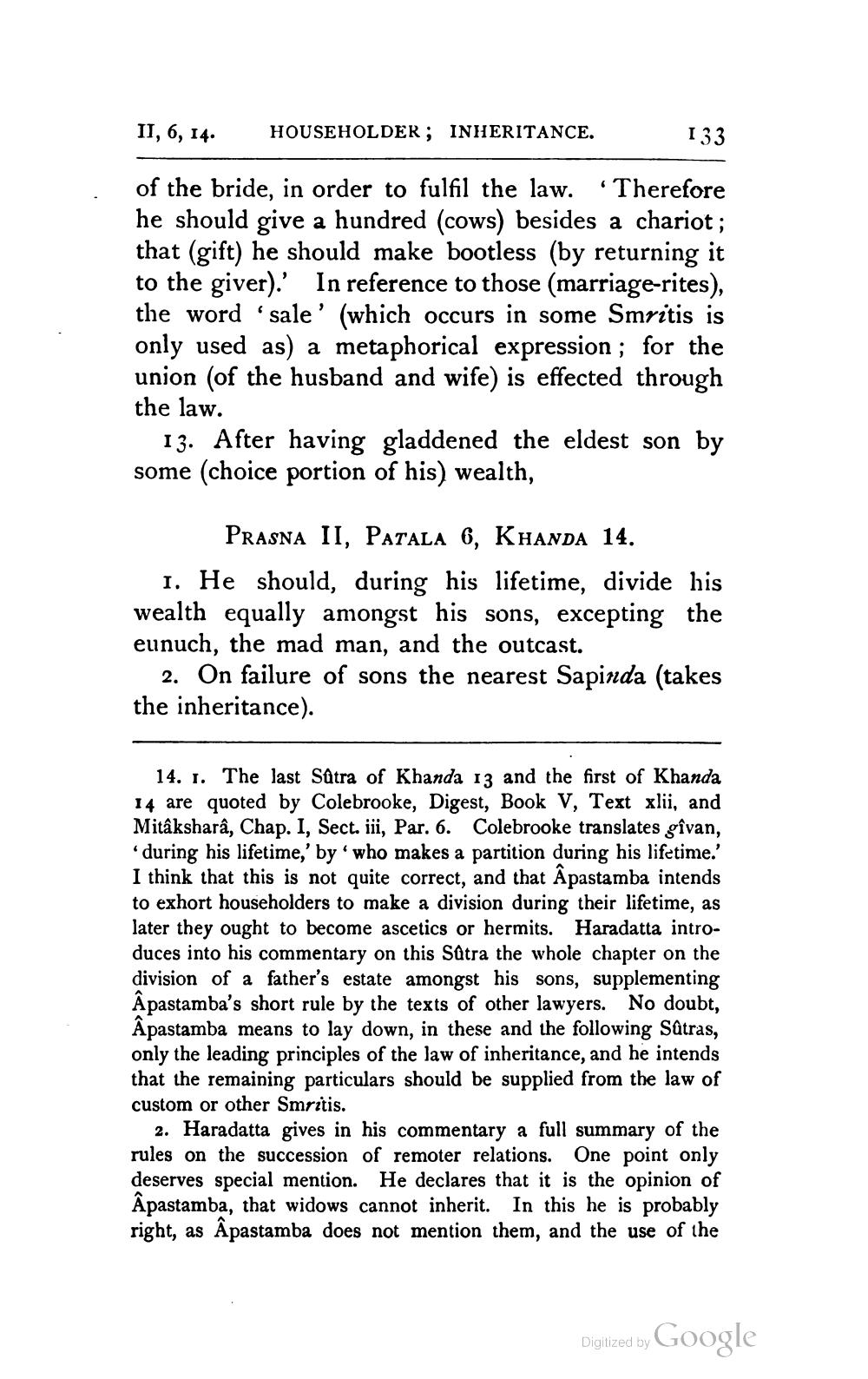________________
II, 6, 14.
HOUSEHOLDER; INHERITANCE.
133
"
of the bride, in order to fulfil the law. Therefore he should give a hundred (cows) besides a chariot; that (gift) he should make bootless (by returning it to the giver).' In reference to those (marriage-rites), the word 'sale' (which occurs in some Smritis is only used as) a metaphorical expression; for the union (of the husband and wife) is effected through the law.
13. After having gladdened the eldest son by some (choice portion of his) wealth,
PRASNA II, PATALA 6, KHANDA 14.
1. He should, during his lifetime, divide his wealth equally amongst his sons, excepting the eunuch, the mad man, and the outcast.
2. On failure of sons the nearest Sapinda (takes the inheritance).
14. 1. The last Sûtra of Khanda 13 and the first of Khanda 14 are quoted by Colebrooke, Digest, Book V, Text xlii, and Mitâksharâ, Chap. I, Sect. iii, Par. 6. Colebrooke translates gîvan, 'during his lifetime,' by who makes a partition during his lifetime.' I think that this is not quite correct, and that Âpastamba intends to exhort householders to make a division during their lifetime, as later they ought to become ascetics or hermits. Haradatta introduces into his commentary on this Sutra the whole chapter on the division of a father's estate amongst his sons, supplementing Apastamba's short rule by the texts of other lawyers. No doubt, Âpastamba means to lay down, in these and the following Sûtras, only the leading principles of the law of inheritance, and he intends that the remaining particulars should be supplied from the law of custom or other Smritis.
2. Haradatta gives in his commentary a full summary of the rules on the succession of remoter relations. One point only deserves special mention. He declares that it is the opinion of Âpastamba, that widows cannot inherit. In this he is probably right, as Âpastamba does not mention them, and the use of the
Digitized by Google




